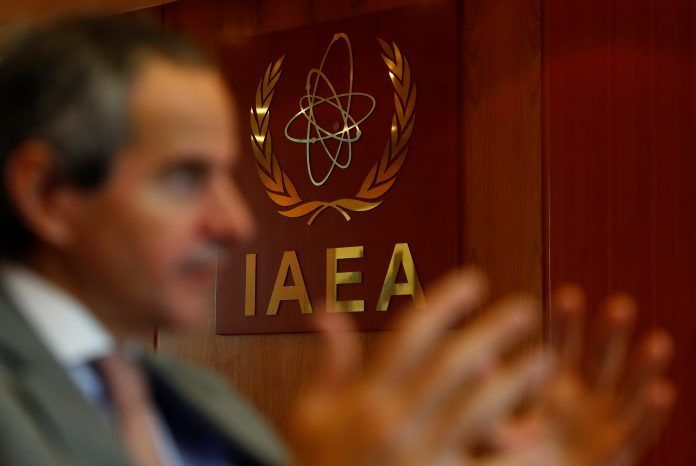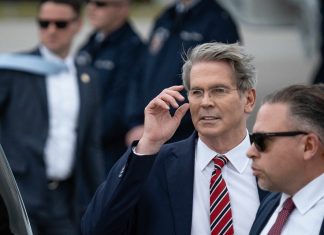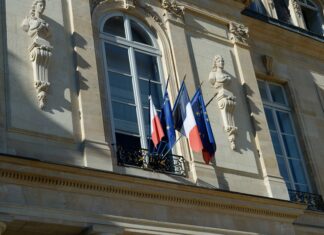
By Parisa Hafezi
DUBAI, Nov 23 (Reuters) – U.N. nuclear watchdog chief Rafael Grossi said on Tuesday that he wanted to deepen cooperation with Iran in his talks in Tehran, days before resumption of negotiations between the Islamic Republic and world powers to revive a 2015 nuclear deal.
“The agency is seeking to continue and deepen the dialogue with the government of Iran… We agreed to continue our joint work on transparency and this will continue,” Grossi, who arrived in Tehran on Monday, told a televised news conference.
The International Atomic Energy Agency (IAEA) last week issued reports detailing its conflicts with Iran, from rough treatment of its inspectors to re-installing cameras it deems “essential” for the revival of Tehran’s nuclear deal.
Tehran and Washington will resume indirect negotiations on Nov. 29 in Vienna, which have been on hold since June, to find ways to reinstate the nuclear deal that former U.S. President Donald Trump exited three years ago and reimposed harsh sanctions on Iran.
Tehran responded by breaching key limits on nuclear activity set by the accord, including rebuilding stockpiles of enriched uranium, refining it to higher fissile purity and installing advanced centrifuges to speed up output.
Failure of diplomacy to bring back Tehran and Washington into compliance with the nuclear deal would carry the risk of a fresh regional war.
Israeli Prime Minister Naftali Bennett signalled readiness on Tuesday to step up Israel’s confrontation with Iran and reiterated that his country would not be bound by any new Iranian nuclear deal with world powers.
In September, Western powers at the IAEA’s 35-nation Board of Governors scrapped plans for a resolution against Iran after Tehran agreed to prolong monitoring of some nuclear activities.
But they still demand Iranian action on two central issues – explaining uranium traces found at three undeclared sites and granting IAEA inspectors access to the TESA Karaj centrifuge component manufacturing workshop to replace the agency’s monitoring cameras there.
The workshop was the victim of apparent sabotage in June in which one of four IAEA cameras there was destroyed. Iran has not returned that camera’s “data storage medium” and the IAEA said it had asked Iran to locate it and explain.
“Some questions were raised based on documents published by our enemies. These questions have now been answered,” Iran‘s nuclear chief, Mohammad Eslami, said after meeting with Grossi.
“Tehran is determined to resolve technical issues with the agency without politicising the matter.”
For fear of harming nuclear talks between Iran and world powers, diplomats say no action is likely to be taken against Iran when the board holds a meeting on Nov. 24. (Writing by Parisa Hafezi; Editing by Kevin Liffey and Nick Macfie)



